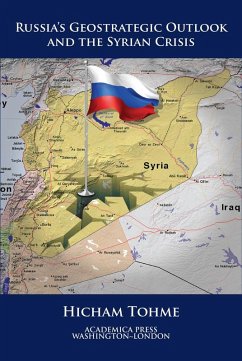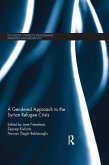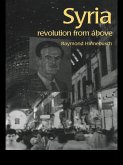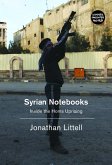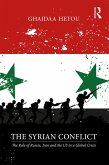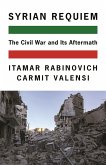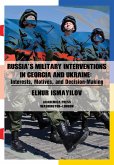In this groundbreaking study, international relations scholar Hicham Tohme offers a critique of current academic, scholarly, and public understandings of Russia's geostrategic outlook through the lens of the ongoing Syrian crisis. This critique is based on a reassessment of four key concepts that shape our knowledge of Russia's foreign policy. First, the Westphalian state system is an inadequate a point of reference when applied to a country that still perceives itself and behaves as an empire. Second, justifying aggressive foreign policy as a counterweight to a perceived deficiency in the legitimacy of Russian President Vladimir Putin's leadership oversimplifies Russian political culture and public values, which do not overlap with Western norms and institutions. Third, analysis of Russian foreign policy, as well as of Russia's global role, remains restricted to what can be best described as a "post-Cold War framework,", a static image of global history for the past thirty years. Finally, most geopolitical and foreign affairs analyses focus on diplomatic and foreign policy rhetoric, rather than foreign policy praxis, as the primary data on which to draw conclusions. Offering an alternate explanation, this study examines Russia's intervention in the Syrian crisis to reveal practices that have come to characterize its global strategy and outlook for the past decade. As such, Russian policy in Syria will be presented as part of a praxis that can describe many facets of Russian global disposition. This clearly places geopolitical practices, not rhetoric, at the heart of the analysis. Further, this book relies on the concept of habitus to explain how these practices inhere in a long tradition of Russian behavior, advancing the notion that they must be understood as part of a historical continuum of Russia's political culture, mainly when it comes to its perception of its neighbors. By adopting a non-Westphalian framework and escaping the epistemological and methodological foundations of traditional foreign policy analysis, this book seeks to answer two key questions: How can we best describe Russia's geostrategic predispositions? And how can we understand Russia's involvement in the Syrian crisis in light of this analysis?
Dieser Download kann aus rechtlichen Gründen nur mit Rechnungsadresse in A, D ausgeliefert werden.

